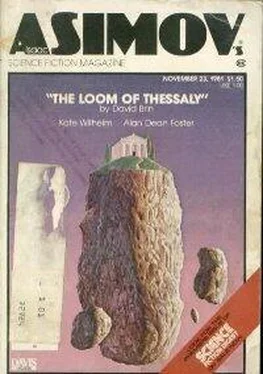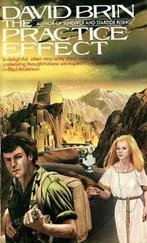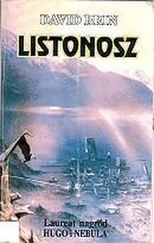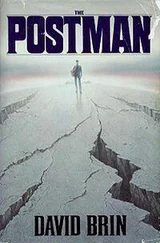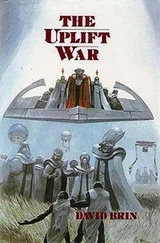David Brin - The Loom of Thessaly
Здесь есть возможность читать онлайн «David Brin - The Loom of Thessaly» весь текст электронной книги совершенно бесплатно (целиком полную версию без сокращений). В некоторых случаях можно слушать аудио, скачать через торрент в формате fb2 и присутствует краткое содержание. Год выпуска: 1981, Издательство: Davis Publications, Inc., Жанр: Фантастика и фэнтези, на английском языке. Описание произведения, (предисловие) а так же отзывы посетителей доступны на портале библиотеки ЛибКат.
- Название:The Loom of Thessaly
- Автор:
- Издательство:Davis Publications, Inc.
- Жанр:
- Год:1981
- ISBN:нет данных
- Рейтинг книги:4 / 5. Голосов: 1
-
Избранное:Добавить в избранное
- Отзывы:
-
Ваша оценка:
- 80
- 1
- 2
- 3
- 4
- 5
The Loom of Thessaly: краткое содержание, описание и аннотация
Предлагаем к чтению аннотацию, описание, краткое содержание или предисловие (зависит от того, что написал сам автор книги «The Loom of Thessaly»). Если вы не нашли необходимую информацию о книге — напишите в комментариях, мы постараемся отыскать её.
The Loom of Thessaly — читать онлайн бесплатно полную книгу (весь текст) целиком
Ниже представлен текст книги, разбитый по страницам. Система сохранения места последней прочитанной страницы, позволяет с удобством читать онлайн бесплатно книгу «The Loom of Thessaly», без необходимости каждый раз заново искать на чём Вы остановились. Поставьте закладку, и сможете в любой момент перейти на страницу, на которой закончили чтение.
Интервал:
Закладка:
The Loom of Thessaly
by David Brin
1
“You can’t get there from here.”
At the time, Pavlos Apropoulos thought his American friend was joking. Now he wasn’t so sure.
“Try it and see,” Frank had said. “It’s less than 250 kilometers from Athens, and I’ll bet you can’t even get close to it!”
That had been easy enough for Frank to say, sitting in the comfort of Pavlos’s Athens apartment. He wasn’t going to be the one who went alone, into the wilderness, to test it.
Pavlos’s arms felt as if they were about to come off. The branch he was holding on to might tear free at any second, leaving him without any firm support. Yet his feet couldn’t seem to find a purchase.
There was dust everywhere. The canyon was filled with a clay pungence that mixed with the overripe odors of bramble bush and perspiration. He could taste blood from one of the cuts he’d taken on his face, during the panicky scramble down the flaky, slippery talus.
This was the easiest route. He was sure of it.
The branch tore loose just as Pavlos got his right foot settled on an uncertain chunk of partially decomposed granite. For a moment he teetered. The canyon wavering about him in a blur of hazy green thorn bushes and a narrow strip of cloudy sky.
Pavlos threw the cluster of twigs away and grabbed for another hold. But dry leaves came off like chaff in his hands as the ground crumbled beneath him.
The brush that had been so formidable in blocking his earlier descent now broke and parted in front of him like chips flying from an axe. Branches tore and whipped at his arms, which he vainly tried to keep over his face as he fell, running and crashing, down the steep slope.
Somehow, he stayed on his feet, though they skidded on the powdery surface. The shrubbery thickened toward the bottom and the slope flattened, but this slowed him only slightly as the headlong rush sent him splashing across a small rivulet of dirty water to slam, arms outstretched, into the opposite canyon wall.
Fragments of desiccated, ancient rock rained down upon him as he labored to catch his breath in a series of shuddering gasps. The clumps fell in a steady stream—a miniature landslide onto the back of his head.
Pavlos stood still, taking things in order. He wasn’t ready to begin cataloguing the bruises and scrapes he had taken. The thudding of loose gravel on his skull meant no more to his overloaded senses than the chalky, rank odor of dust and sweat which he took in with each ragged breath, or the almost unbearable weight of his backpack.
The landfall subsided at about the same rate as Pavlos’s breathing. Dust settled, leaving a fine white patina on his hair and hunched shoulders. He waited a few moments longer, eyes shut tightly against the floating grit, listening to the fading creakings his passage down the scarp had set off. When finally he looked around, Pavlos shuddered.
In thirty years of mountaineering he had seen many ravines like this, but this was the first time he had ever been in one. There had never been a need, before. There had always been another way… an easier route.
Not this time, though. The place where he had come down was the best he had found in an entire day of searching. It was hideous.
Gnarled trees and thorn bushes covered the sixty-degree slope. Jagged rocks protruded from the starved, parched soil. It was a miracle he had come this far without breaking a leg, or his skull.
More than ever he was convinced he was on the right path. This monument to inaccessibility had to be the place Frank had spoken of.
He checked for cuts and bruises. It was a good thing he had chosen, after carefully examining Frank’s aerial photos, to wear leather for this expedition. It had protected most of his skin, although several unbelievable thorns had pierced his garments and had to be pulled out amid momentary, excruciating pain.
He allowed his pack to slide down and form a seat to rest on. With slow deliberation, he drew out his aid kit and applied disinfectant to the cuts on his face and the backs of his wrists.
Only after his breathing settled, and the spots disappeared from in front of his eyes, did he allow himself a slow, sparing swallow from one of his canteens. He wet a handkerchief and carefully wiped the grit away from his eyes and lips.
Upstream to the right a few dozen meters was the path of ascension he had picked out during his visual scouting, earlier, from the other side. It was the route with marginally fewer obstacles than elsewhere along this face.
He stood, groaning at the stretch of abused muscles, and moved a few feet to examine the route. Then he compared it with the path he would have to take if he turned around, right now, and went home.
Sure enough. As bad as the way down had been, it looked more tempting to someone trapped in the ravine than the hellish slope he would have to climb if he continued forward.
It had been that way all the way here. Every trail, every game path, every natural sloping led one circumspectly away from the small area he wanted to reach. In no specific case had there been anything suspicious about the avoidance. Each time there had been a good and obvious reason to turn one way, instead of the other that led here.
It was the sum that drove Pavlos crazy. It had only been by the most steadfast determination to violate all of the rules of mountaineering that he had been able to get this far. It had taken two days to come just five kilometers from that last hamlet of surly, taciturn herdsmen.
Pavlos reached into his pack for the high altitude photos Frank had given him.
“This is the first one I took from orbit,” Frank had said when he showed Pavlos the first large-scale photo. “I used the cartography telescope in interface with the computer on board the Platform. This locale was flagged in the course of a survey I was doing for the EEC—an attempt to determine population density versus terrain type. This spot gave Fourier Transform that was quite unusual.”
The satellite photo was very clear. It looked like it had been taken from only a few thousand feet in altitude. Pavlos easily recognized the elevation contour markings that lay upon apparently typical Grecian highlands. He had, after all, been teaching map reading and leading expeditions while his young American friend had been scrawling stick figures in crayon on the kitchen wall in his parents’ house in Des Moines.
The photos lay on his dining room table, three stories above the noisy streets of Athens. Outside his apartment door children ran down the hall, screaming in some incoherent game. To him it was all part of the background. He worried over the other lines and squiggles on Frank’s map, reluctant to admit his ignorance to the astronaut, however close they had become during a mission in the Sudan, two years before.
“This is in Thessaly, is it not?” He pointed to the shape of the hillsides, the lay of the sun in the creek beds, wishing to show that expertise meant as much as did fancy technology.
Frank’s eyebrows rose. Impressed, he showed it with typical American ingenuousness. Americans had no second skin, no Mediterranean wall of caution. Pavlos loved them for it.
“Yes, that’s right,” Frank had said. “And here you see how the population density and terrain accessibility profiles rise and fall together nicely everywhere.
He pulled out another photo.
“Here is the city of Thessalonica, with almost a million people. Now weighted only against local resources, there’s no good explanation for its population advantage over, say, Larisa a bit farther south. But taking into account factors such as travel times along various egress points, terrain…
Читать дальшеИнтервал:
Закладка:
Похожие книги на «The Loom of Thessaly»
Представляем Вашему вниманию похожие книги на «The Loom of Thessaly» списком для выбора. Мы отобрали схожую по названию и смыслу литературу в надежде предоставить читателям больше вариантов отыскать новые, интересные, ещё непрочитанные произведения.
Обсуждение, отзывы о книге «The Loom of Thessaly» и просто собственные мнения читателей. Оставьте ваши комментарии, напишите, что Вы думаете о произведении, его смысле или главных героях. Укажите что конкретно понравилось, а что нет, и почему Вы так считаете.
